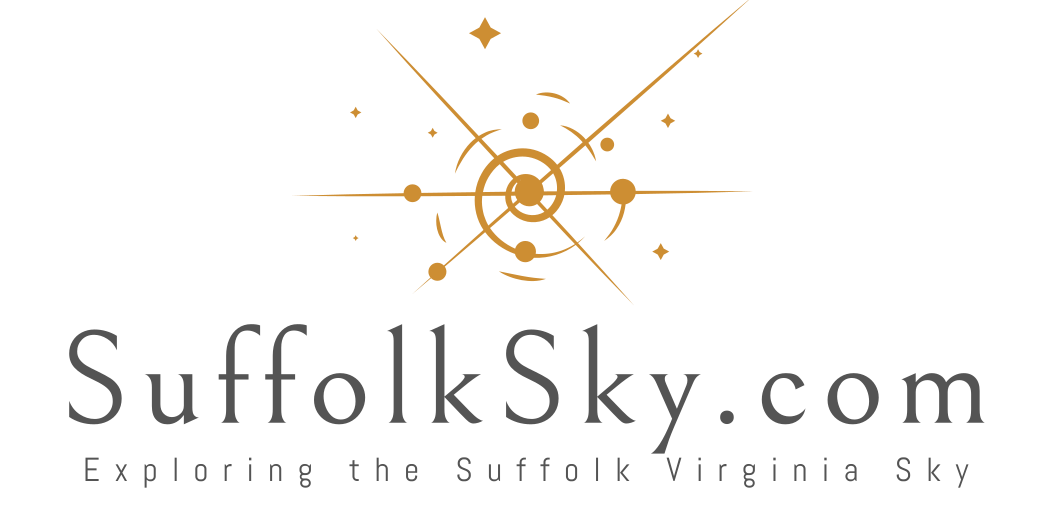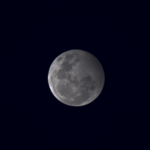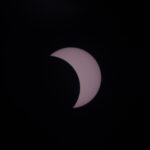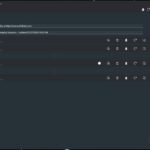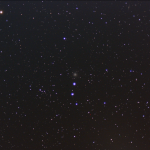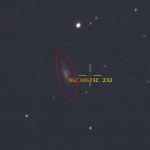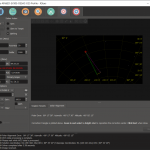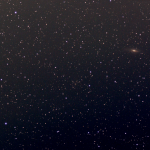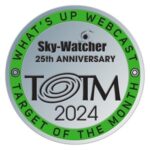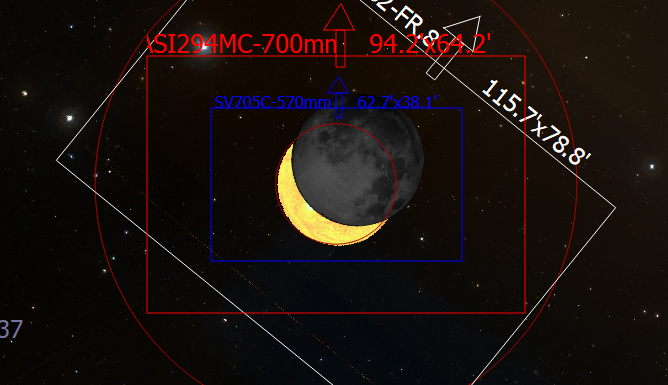
On April 8, 2024, a total solar eclipse will be visible across a good portion of North America: passing over Mexico, the eastern half of the United States, and Canada. Even though Virginia is not in the path of totality we still should be able to enjoy a great solar event. Before that, in the early morning of March 25, 2024, there will be a lunar eclipse which will also be visible in the Suffolk Sky.
IMPORTANT: DO NOT look directly at the Sun. DO NOT attempt to view the Solar Eclipse without taking the necessary safety precautions. DO NOT use a telescope or binoculars to look at the Sun unless you have the proper filters. You could damage your eyes and your equipment.
In the SuffolkSky the Eclipse is going to be visible in the afternoon on April 8, 2024 from sometime just after 2 PM EDT, when the Moon passes between the Earth and the Sun, till the around 4:30 PM EDT, when the Moon clears the Sun. I used the ability to set the time (post coming soon) in KStars to generate this simulation of what the Solar Eclipse will look like from my location in Suffolk, VA at 3:15 PM EDT on April 8, 2024.
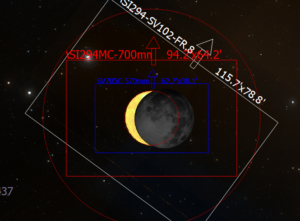
Remember it is not safe to look directly at the Sun. There are a several different methods you can use to safely view the Sun during the Solar Eclipse. Let’s look at a few of the options available to safely view the Solar Eclipse.
Eclipse viewing glasses are an inexpensive way to safely view the solar eclipse. They are similar to paper 3D glasses which are sometimes given out at movie theaters, but the “lenses” are special filters which allow for safe direct observation of the Sun. I bought a box of them on Amazon to have enough to give to the grandkids and the kids in the neighborhood.
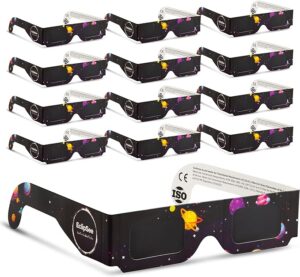
If you are planning to view or photograph the Sun through a telescope, unless you have a purpose built (and expensive) Solar Telescope, you will need a telescope solar filter. These filters are made of either glass or a special film which blocks a majority of the Suns light allowing you to safely view or image the Eclipse through a telescope. This is the solar filter I have for my SVBONY SV503 102ED Telescope, it fits the 102 nicely and allows me to view and image the Sun safely.
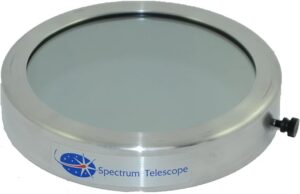
A very cool no/low cost option is this pin hole camera project from the NASA Jet Propulsion Laboratory using a couple sheets of paper, a small square of aluminum foil, and some tape. You probably have what you need around the house to construct one. A pin hole camera projects an image of the Sun which can be safely viewed. A pin hole camera is a great project for kids.
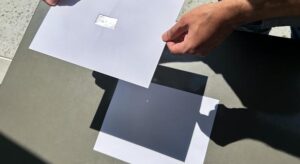
Another great option is looking through someone else’s telescope, virtually. I plan to broadcast during the solar eclipse on NightSkiesNetwork.com and I am sure there will be many others broadcasting during the solar event. NightSkiesNetwork.com is a platform that allows amateur astronomers to broadcast, or share, their observing sessions live over the Internet. This will provide the opportunity for lots of people to view the solar eclipse through different scopes/equipment and from different locations, even if it is not visible from where they live.
If you are looking for more information on the April 2024 Solar Eclipse check out the NASA 2024 Total Eclipse resource page and the April 8, 2024 Solar Eclipse Wikipedia page.
Between now and then, in the very early morning of March 25, 2024, there will be a lunar eclipse visible in the Suffolk Sky. No risk of eye or camera damage looking at a lunar eclipse, but you will have to get up pretty early in the morning on Monday, March 25, 2024 to get a look at it. Here is the view of the lunar eclipse from Suffolk, VA at around 3:30 AM EDT the morning of March 25, 2024.
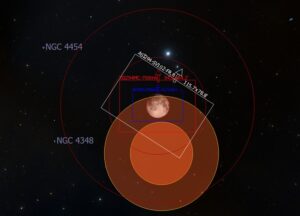
The orange disc is KStar’s representation of the Earth’s shadow. During this lunar eclipse just over 95% of the Moon will be in the Earth’s shadow. If the sky is clear the morning of March 25 I may broadcast the lunar eclipse on NightSkiesNetwork.com (fingers crossed). This is the first of two lunar eclipses which will take place in 2024; the next one is a partial lunar eclipse which will take place on September 18, 2024.
Now we just have to hope for a clear sky in the early morning on March 25, 2024 for the lunar eclipse and on April 8, 2024 in the afternoon for the Solar Eclipse.
Are you planning to observe either the March 25 lunar eclipse or the April 8 solar eclipse? Where are you going to be observing from? What equipment to you plan to use to view the eclipse? Let us know in the comments.
